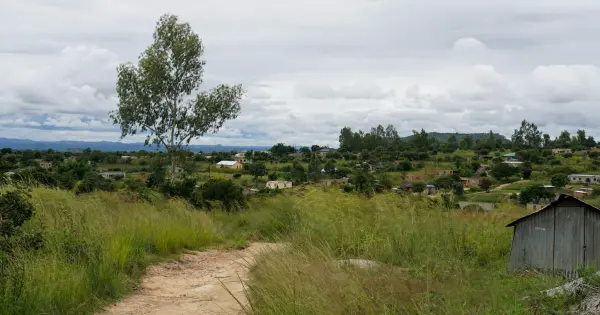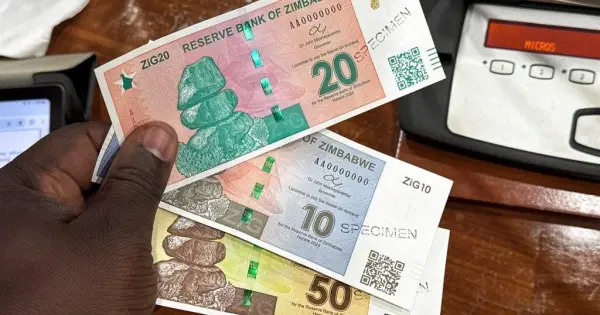Are you torn between investing in a city centre flat or an office space downtown? Confused about which CBD property type offers the best bang for your buck? You don't have to feel bad about that. Whether you're a first-time investor looking to break into Zimbabwe's urban property market or a seasoned professional exploring new opportunities, understanding the ins and outs of CBD properties can be overwhelming.
In 2025, Zimbabwe's CBD property landscape continues to evolve, with changing work patterns and urban migration reshaping demand. This comprehensive guide unpacks everything you need to know about property types in Zimbabwe's central business districts.
The Current State of Zimbabwe's CBD Property Market
The heartbeat of any city is its central business district, and Zimbabwe's urban centers are no exception. As Zimbabwe's largest property platform with over 8,500 listings nationwide, Propertybook's data reveals that CBD properties make up roughly 15% of all urban property transactions.
The CBD property market in cities like Harare and Bulawayo currently breaks down into:
- 60% flats and apartments
- 20-30% commercial properties
- 10-20% office spaces
This distribution reflects both historical development patterns and current market demands. But what makes each property type tick? Let's break it down.
Apartments and Flats: Urban Living in the Heart of the City
Property Specifications
City centre apartments in Zimbabwe typically fall into three categories:
- Studio and one-bedroom units (30-50 sqm): Perfect for young professionals and singles
- Two-bedroom apartments (50-80 sqm): Ideal for small families or professionals sharing
- Luxury three-bedroom penthouses (100+ sqm): Catering to executives and high-income earners
Most CBD apartment buildings were constructed between the 1970s and early 2000s, with newer developments rare but commanding premium prices. Typical features include:
- Security (often 24-hour guards or gated access)
- Balconies (particularly in older buildings)
- Shared amenities (less common but may include generators or water storage)
- Parking (limited in older buildings)
Target Market Analysis
Who's buying and renting CBD apartments? Our data shows three main groups:
- Young professionals (25-35 years): Seeking convenience and proximity to workplaces
- Small-scale investors: Looking for rental income from the steady demand for central accommodation
- Empty nesters: Downsizing from suburban homes to more manageable city living
Interestingly, many suburban Zimbabweans are increasingly considering CBD apartments to cut fuel costs and commuting time as traffic congestion worsens in major cities.
Harare CBD Apartments for Sale Price Comparisons
Based on Propertybook's database of over 8,500 properties, here's how Harare CBD apartment prices currently stack up:
- One-bedroom: $80,000-$90,000 (average price per sqm: $750)
- Two-bedroom: $110,000-$130,000
- Three-bedroom: $140,000-$160,000
Rental yields for CBD apartments typically range between 5-7%, higher than the 3-5% commonly seen in suburban residential properties.
For example, a two-bedroom flat in Harare's CBD currently rents for approximately $350-$500 per month, while equivalent suburban units might fetch $500-$700 but require significantly higher purchase investments.
Maintenance Requirements
CBD apartments come with unique maintenance considerations:
- Water supply challenges: Many buildings rely on boreholes or water delivery services
- Electricity backup systems: Essential given frequent power outages
- Security costs: Higher than suburban properties
- Common area maintenance: Often managed through body corporates with monthly levies
Many CBD buildings suffer from deferred maintenance, making pre-purchase inspections crucial. Look for buildings with active body corporates and reasonable monthly levies (typically $50-$150 depending on building amenities).
Commercial Properties in Harare CBD: The Business Hub Advantage
Property Specifications
Commercial CBD properties in Zimbabwe typically include:
- Street-level retail spaces (50-200 sqm)
- Mixed-use buildings (commercial ground floor with offices or apartments above)
- Purpose-built retail complexes (less common but highly sought after)
Key features that differentiate commercial CBD properties include:
- Street frontage and visibility
- Customer accessibility
- Loading zones and service areas
- Clear floor spaces with minimal structural columns
- Higher floor-to-ceiling heights than residential properties
Target Market Analysis
The demand for commercial CBD property comes primarily from:
- Small and medium enterprises: Local businesses seeking high foot traffic
- Retail chains: Particularly banks, pharmacies, and convenience stores
- Service providers: Professional services seeking central locations for client convenience
According to our 2024 tenant survey, businesses value CBD locations primarily for customer accessibility (68%) and brand visibility (54%), while citing parking limitations (72%) and security concerns (63%) as major drawbacks.
Price Comparisons
Commercial property in Zimbabwe's CBDs commands significant premiums:
- Average purchase price: $865,000
- Price per sqm: $960
- Typical size range: 100-500 sqm
Rental rates vary significantly by specific location, with corner properties and those on main streets commanding 30-40% premiums over similar properties on quieter streets.
For instance, a 200 sqm retail space on Harare's First Street might lease for $15-20 per sqm, while a similar space two blocks away might fetch only $8-12 per sqm.
Investment Potential
Commercial CBD properties provide distinct investment advantages:
- Triple-net leases: Common in Zimbabwe, where tenants bear most operational costs
- Longer lease terms: Typically 3-5 years versus 1-2 years for residential
- Inflation protection: Commercial leases often include annual escalations linked to inflation
- Diversification potential: Less sensitive to residential market fluctuations
The key metric for commercial property investors is the capitalization rate ("cap rate"), which currently averages 8-10% for prime CBD locations in Zimbabwe – significantly higher than residential property returns.
Office Spaces: Changing Demand in Zimbabwe's Urban Centers
Property Specifications
Zimbabwe's CBD office spaces typically fall into three categories:
- Heritage buildings: Colonial-era structures converted to offices
- Purpose-built office blocks (1970s-1990s): Conventional multi-story buildings
- Modern office developments: Limited but increasing in specific zones
Typical configurations include:
- Small suites (50-100 sqm): Suitable for professional services
- Medium offices (100-300 sqm): Ideal for established businesses
- Large floor plates (300+ sqm): Targeted at corporate tenants
Target Market Analysis
The office market in Zimbabwe's CBDs has seen significant shifts post-COVID, with demand now primarily from:
- Government departments: Maintaining traditional CBD presence
- Financial institutions: Banks and insurance companies
- Legal and professional services: Valuing proximity to courts and government offices
- Small businesses: Seeking affordability over premium suburban locations
There's been a notable trend of larger corporations relocating from CBDs to suburban office parks, creating opportunities for building repurposing.
Price Comparisons
Office space in Zimbabwe's CBDs presents interesting value propositions:
- Average purchase price: $740,000
- Price per sqm: $1,300
Rental rates show significant variations:
- CBD office rental rates: $6-10 per sqm
- Suburban office rates: $12-15 per sqm
- Premium office parks: $15-20 per sqm
This rental inversion (where suburban commands higher rates than CBD) is unique to the office sector and reflects changing perceptions of prestige and convenience.
Market Trends
Key trends affecting CBD office properties include:
- High vacancy rates: Currently 40-60% in some CBD areas
- Conversion potential: Many offices being repurposed for residential or mixed use
- Infrastructure challenges: Aging electrical and plumbing systems requiring significant upgrades
- Parking premiums: Buildings with dedicated parking commanding 20-30% higher rents
The suburban migration of office tenants has created a two-tier market: premium CBD buildings maintaining relatively high occupancy and older buildings struggling with vacancies.
Investment Considerations for Zimbabwe CBD Properties
When weighing up CBD property investments in Zimbabwe, consider these critical factors:
1. Infrastructure Independence
Properties with independent infrastructure solutions command premiums in Zimbabwe's challenging utility environment:
- Water storage capacity: Rooftop tanks or borehole access
- Power backup: Generator capacity or solar installations
- Internet connectivity: Fiber-optic availability
- Parking solutions: On-site or guaranteed nearby parking
A building with reliable backup power and water systems can command 15-25% higher rents, according to our tenant surveys.
2. Adaptable Spaces
The most resilient CBD investments offer flexibility for changing uses:
- Floor plate designs: Open plans that can be reconfigured
- Ceiling heights: Higher ceilings allowing for various uses
- Service connections: Adequate electrical, water, and drainage capacity
- Access points: Multiple entrances enabling subdivision
Properties with these features maintain higher occupancy rates and adapt better to changing market demands.
3. Location Micro-Factors
Within CBDs, specific location factors dramatically impact value:
- Corner locations: 25-35% premium over mid-block
- Proximity to transport hubs: 15-20% premium
- Street hierarchy: Main streets command 30-40% premiums over secondary streets
- Clustering effects: Properties near similar successful businesses often outperform
Propertybook's historical sales data shows properties on primary CBD streets in Harare have appreciated approximately 7% annually, compared to 3-4% for secondary streets.
Making the Right CBD Property Investment
Based on Propertybook's extensive experience with over 2,000 agents nationwide, here are our top recommendations for CBD property investors in 2025:
For First-Time Investors:
CBD apartments offer the lowest entry point and most stable returns. Focus on:
- Buildings with functional body corporates
- Units with individual water storage
- Locations within walking distance of major employers
- Buildings with dedicated parking
For Experienced Investors:
Consider under-valued commercial spaces with:
- Corner locations or high visibility
- Conversion potential between retail and office use
- Independent utility infrastructure
- Proximity to complementary businesses
For Institutional Investors:
Look for distressed office buildings suitable for:
- Conversion to residential or mixed-use
- Subdivision into smaller, more marketable units
- Energy efficiency retrofits to reduce operational costs
- Addition of modern amenities (fiber internet, parking solutions)
Conclusion: The Future of Zimbabwe CBD Property Investment
Zimbabwe's CBD property market presents unique opportunities and challenges in 2025. While suburban growth continues to attract attention, savvy investors recognize the value proposition of central locations, particularly as infrastructure improvements and urban renewal initiatives gain momentum.
The most successful CBD property investors will be those who understand the distinct characteristics of each property type and can identify assets with adaptive potential. As Zimbabwe's urban landscape evolves, properties that can meet changing demands will outperform the broader market.
For personalized guidance on CBD property investments or to explore current listings, visit Propertybook's CBD properties section or contact our team of experienced agents.
This article was prepared by the Propertybook Research Team using data from our database of 8,500+ properties and insights from our network of 2,000+ agents across Zimbabwe. All market data current as of March 2025.




